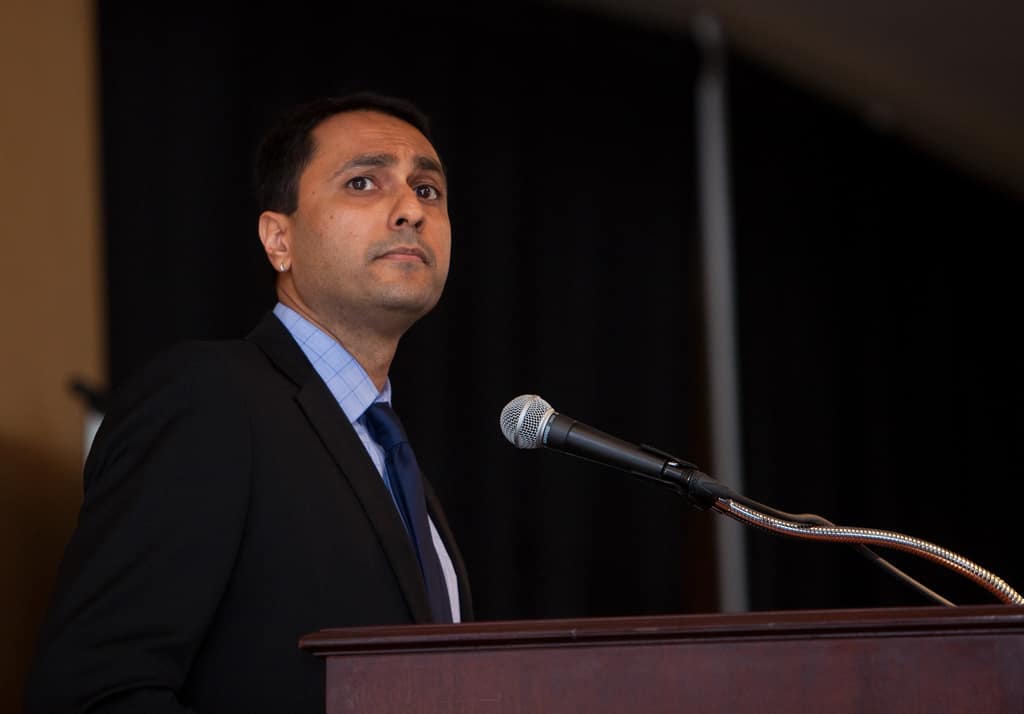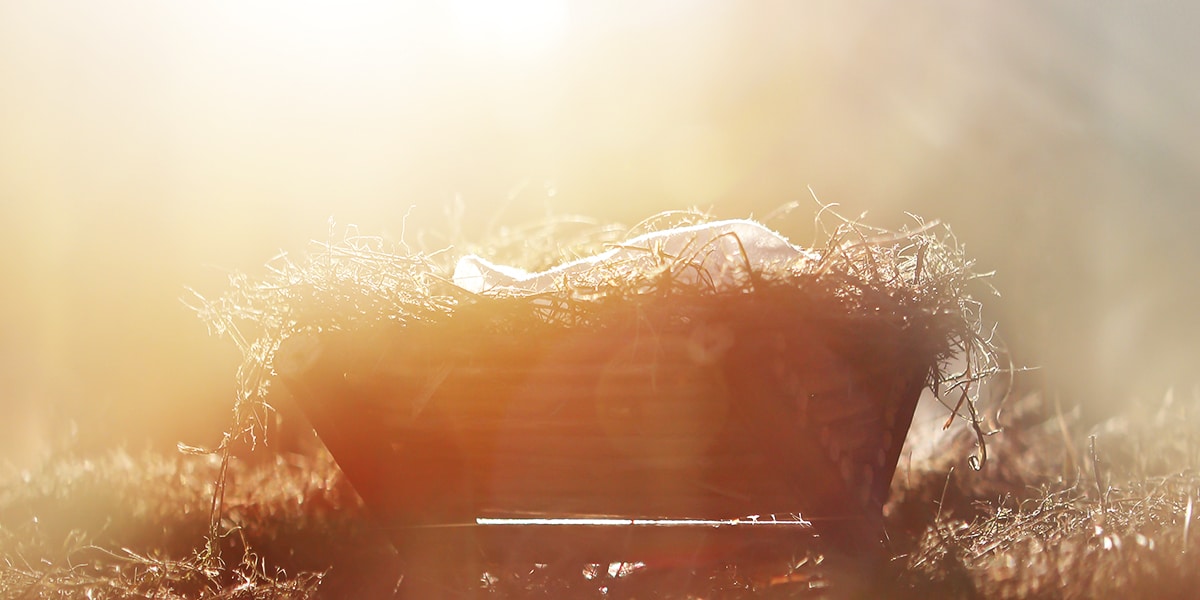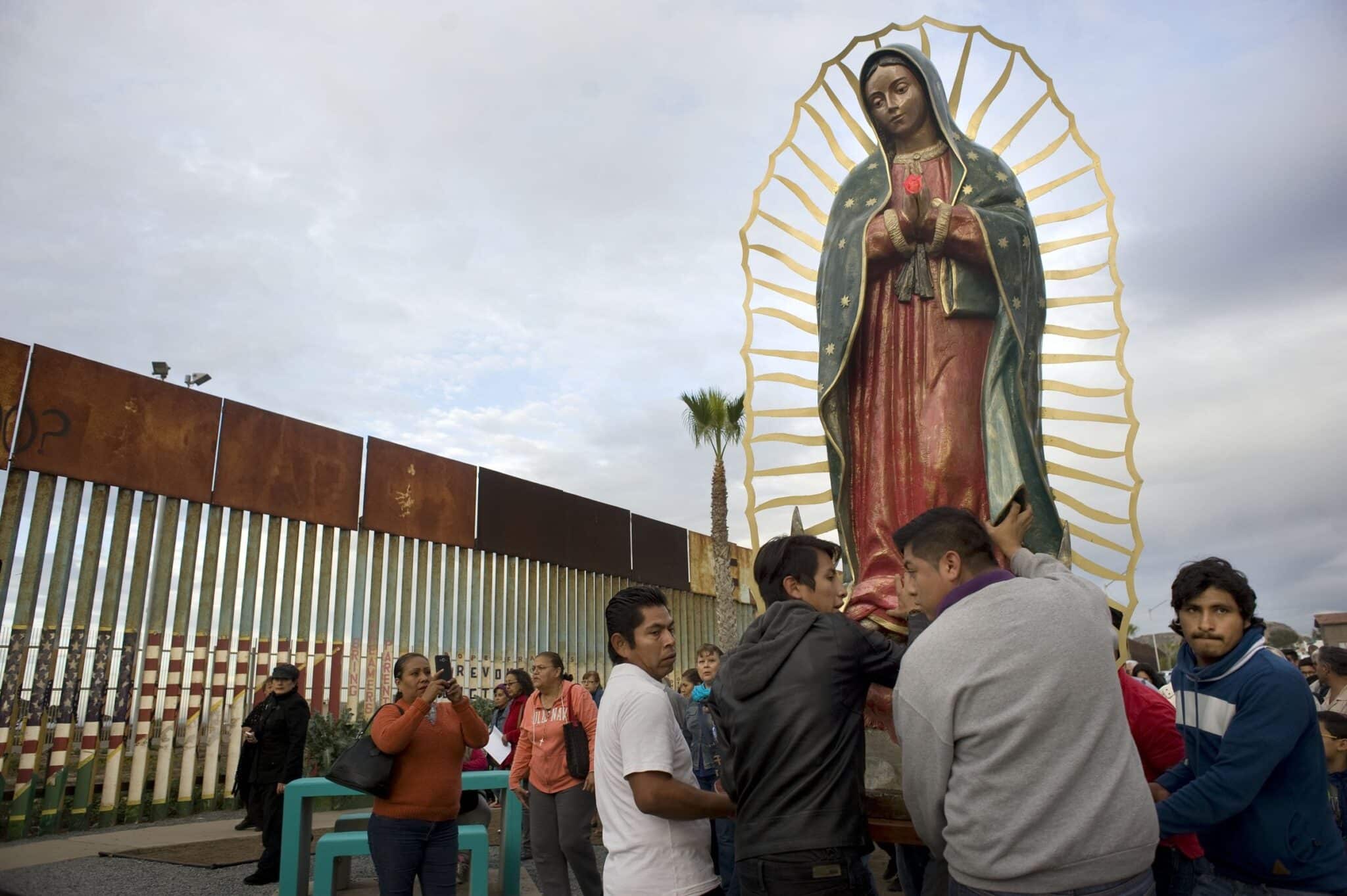It didn’t take the horrors of September 11, 2001, to convince Eboo Patel of the importance of working toward interfaith understanding, cooperation and service. As an American Muslim committed to peace and respect for all religions, he’d already been about that task for years. The tragedies of 9/11 only deepened his resolve to build bridges of understanding between and among peoples in order to overcome the hatred that reigned that day.
Spurred by the belief that religion is a force for good, Eboo had founded the Interfaith Youth Core in 1998 at age 22. Its goal: to harness the positive energy of young people of all faiths, including Christians, Muslims, Jews, Buddhists, and Hindus; to replace religious conflict with interfaith cooperation; to inspire college students from diverse backgrounds to work side by side in service projects.
Today the Interfaith Youth Core (IFYC) is a thriving organization active on close to 100 campuses across the United States many of them Catholic and in several foreign countries. (For more information on the IFYC, see Youth + Faith + Service.)
“Can religion play a positive role in society? It can and it has to! ” Eboo tells St. Anthony Messenger during an hourlong interview in the fourth-floor offices of the IFYC in Chicago’s West Loop. No group is better prepared to play a key role in transforming the world, he believes, than young people whose faith inspires them to service. (IFYC also welcomes students of no particular faith.)
Across the Table
Dressed in casual Friday attire blue jeans and a gray sweater Eboo, who soon turns 36, sits at a conference room table in his office. He announces that his wife, Shehnaz Mansuri, a civil-rights attorney, and sons Zayd (age four) and Khalil (age one and a half) will be stopping by soon, a happy ending to another long workweek.
Meanwhile, he tackles an array of questions ranging from his own faith journey to his work, his practices as a Muslim, the role of the Quran in his life, his religious heroes, the relationship between Islam and extremism, shared values between Muslims and Catholics, how he remains hopeful and how he plans to observe the 10th anniversary of 9/11. Everything is on the table.
Born in Mumbai, India, in 1975, Eboo (short for Ibrahim) and his family moved to the United States two years later; his father had been accepted into the MBA program at the University of Notre Dame. Eboo grew up in the suburbs of Chicago, where his brown skin, Muslim faith and Indian heritage often left him feeling like an outsider. He experienced racist bullying and, for a time, struggled with his beliefs not unlike many of his adolescent peers.
As he set out to find his own spiritual bearings, he also opened himself to the religious expression of others.
Faith Heroes
It was as a college student at the University of Illinois that Eboo became aware of the work of the Catholic activist Dorothy Day, founder of the Catholic Worker movement.
As he notes in his book, Acts of Faith: The Story of an American Muslim, the Struggle for the Soul of a Generation (Beacon Press), he was “intoxicated ” by Day’s vision and by the commitment of her followers to serve the poor in God’s name. He himself spent time serving the poor at Catholic Worker houses around the country.
“Dorothy Day is my first interfaith hero, ” Eboo says, though his long list also includes Mother Teresa, Cardinal Joseph L. Bernardin, Martin Luther King, Jr., Gandhi, Rabbi Abraham Joshua Heschel and the Aga Khan. “Dorothy Day asked, ‘Why are there homeless people, poor people?’ and inspired others to follow her. Her life was a mercy upon others. ”
Personal Faith Practices
Today, Eboo, who earned a doctorate in the sociology of religion from Oxford University (on a Rhodes scholarship) in 2002, describes himself as a “devoted ” Muslim. He is a member of the Ismaili sect, a branch of Shia Islam. Ismaili religious practices differ from Islam’s larger sects whose followers pray five times each day.
Eboo regularly worships at home rather than in a mosque. He carries and treasures prayer beads (tasbih). He turns to them throughout the day “to chant the name of Allah, ” the Arabic name for “the God. ”
While he knows many verses of the Quran by heart, he acknowledges that he hasn’t memorized the entire Quran. His favorite verse is the opening prayer, one most often recited by Muslims and sometimes referred to as The Lord’s Prayer of the Quran: “In the name of God the compassionate, merciful, you are the Lord of all the worlds. We turn to you in prayer. Bless, guide us on the straight path. ”
“The Islamic tradition is very important to me, ” Eboo explains. “Its moral and ethical traditions are the foundation of my life and work. ” But Eboo’s life and work aren’t only about honoring Islam. They are about respecting all faith traditions in a nation built on religious pluralism.
Eboo and his wife send Zayd to a Catholic school, where Eboo is convinced his young son is getting a fine education as well as a “moral compass ” and “respect for all religions. ” In turn, Zayd sees respect for his own Muslim tradition. When it’s pizza day at his preschool, the teachers honor the young boy’s dietary restrictions: no pepperoni, no pork. No problem.
Points of Contact
Asked what common values and/or beliefs Muslims and Catholics hold, Eboo has a ready and eager answer: “We pray to the same God, to the One God. We have a powerful shared value in love of God and neighbor. Just think of the impact we can have on the 21st century! ”
How do Muslims regard Jesus? “Muslims deeply revere Jesus because he is the embodiment of mercy and compassion. He reached out to the marginalized. We believe that God sent a series of prophets to teach humankind between Adam and Mohammed. Jesus is in the middle. There is one God, and the chief characteristic of that God is mercy. Jesus embodied that. He showed what mercy looked like. ”
The word mercy comes up often in conversation with Eboo. “As Muslims, ” he says, “we are commanded to help others, to make mercy. ”
But Eboo will be the first to acknowledge that, all too often, “the people you see representing Islam are the antithesis of this. ” Unfortunately, he continues, “Muslim extremists are ugly and loud, and terrorism and hatefulness are some of the properties of Muslim extremism. I hope your readers recognize that those people are the worst elements of Islam. ”
The loud voices get on TV, he continues, “but they are not the majority. ” Former Fox News host and commentator Glenn Beck has speculated that 10 percent of Muslims are terrorists. Eboo suggests the correct number is “below one percent. ”
Making Distinctions
It is important to differentiate between terrorists and fundamentalists, he says. While the former “carry out acts of violence, fundamentalists believe in a literal reading of the Quran. They focus on differences rather than commonalities. They don’t emphasize mercy, cooperation, appreciation and understanding, but they’re not inherently dangerous. If they cross into violence, they should be dealt with legally. ”
Such distinctions are often lost among people of faith who can view the 1.5 billion Muslims of the world as a monolith, says Eboo. As a member of the Ismaili sect, he represents “a different expression of Islam ” than many others who also claim Islam.
“But some people are just proud to hate Muslims, ” Eboo says. When he has offered commentaries on various topics in writing, on radio, on TV his name has cropped up on what he calls hate blogs. “There is an industry of people who make a living out of highlighting the worst elements of the Muslim community. ”
Does Eboo see signs of Islamophobia (an unfounded fear of and hostility toward Islam) in our culture? Yes, he says, citing some poll results showing that 40 percent or more of Americans express negative feelings about Muslims and the many Americans who incorrectly insist that President Barack Obama is a Muslim.
Though he himself no longer faces harassment as a brown-skinned Muslim, Eboo worries that his young sons may be subjected to “ugly stuff ” as they grow older. “How will people view them? ” he worries aloud.
Backward Steps
Some days before Eboo’s interview with St. Anthony Messenger, Terry Jones, the pastor of a tiny Christian church in Florida, conducted a public “trial ” of Islam, followed by the symbolic burning of a Quran. Muslims in many parts of the world rioted in response, and dozens died in the ensuing violence. (Archbishop Lawrence Saldanha of Pakistan responded by calling for the arrest of the pastor.)
When asked how he reacted to the news reports, Eboo sighs. He shakes his head. He wishes the news of Jones’s actions had never reached public awareness. He wishes the violence in Pakistan had never occurred. He worries that relations between people of two great faiths will only worsen.
Before 9/11, says Eboo, “Ninety-five percent of people never even thought about Islam. ” For so many, the first time it was brought to their attention was when “extremists on TV were telling the world that they hate America and Christians and Jews. But people don’t know the acts of mercy and compassion so many Muslims practice. ”
Why is it, he says, “that we really know so little about one another? ” More importantly, he continues, “Why is it that so much of what we know about one another is the worst? We should talk about what we admire about other faiths rather than focusing on the negative. ”
History offers specific examples of conflict between Catholics and Muslims, Eboo knows. But he instinctively turns to the beautiful stories of cooperation, including the powerful 13th-century encounter between St. Francis and the sultan. “Which of these stories of conflict or cooperation do we want to bring into the next chapter of history? Am I going to learn things about others’ faiths that are positive or hateful? ”
Better Together
Eboo believes in his heart and soul that the Interfaith Youth Core has the answer: Let us get to know one another at the deepest levels possible. In a world in which we see people of different faiths fighting so much of the time, why don’t we work together? We are better when we work together.
“People are starving for a message of hope, ” he says. “The Interfaith Youth Core is writing a new chapter in history! ”
Eboo cannot know where the future will lead him, but his influence and contributions are already remarkable.
He is writing a new book, to be called Sacred Ground (Beacon Press). It is set for publication in the spring of 2012. He’s already part of an elite network of social entrepreneurs whose ideas have the potential to change the world.
In 2009, he was named by U.S. News & World Report as one of America’s Best Leaders. He served on President Obama’s inaugural Advisory Council of the White House Office of Faith-based and Neighborhood Partnerships. Eboo serves on many boards and writes widely. His speaking engagements, which now average once a week, are likely to increase. CNN, NPR and the BBC often seek him out.
But for now, he says he is “proud, grateful and blessed ” to be where he is: leading an interfaith effort designed to inspire young people of different faiths and no faith at all to help build a world that truly embraces religious pluralism. For him, young people are the future. They keep him hopeful.
9/11 in 2011
When interviewed, Eboo couldn’t know for certain just where he would be on Sunday, September 11, 2011. But he had a clear sense of how he would like to spend key portions of the day.
“I am sure to spend time in prayer and reflection for part of the day. I also want to join in a service project with people from different faiths, ” a project that somehow “benefits the world. ” Finally, he says, “If I am asked to give a speech, it will be about the centrality of loving God and neighbor. ”
Meanwhile, Eboo Patel continues to participate in the writing of that next chapter of history with the help of young people acting out of their deepest beliefs. It’s their voices and good works he wants to hear and see highlighted on the evening news, not the voices of hate. He prefers the language of love.
Youth + Faith + Service
Jen is working on a religious literacy project for local high schools in California. Guru is raising funds to send filters to Haiti to combat water pollution. Vivian is running a recycling campaign in her college dorm. Amtul is heading efforts to revive an abandoned street in Trenton, New Jersey.
These are just some of the student leaders behind the Better Together Campaign, a yearlong effort of the Interfaith Youth Core (IFYC. org) on college campuses.
The program is designed to empower students to lead activities that build interfaith cooperation. A Better Together Bash was held last April to celebrate their work and impact. They, and the hundreds who have gone before them, have answered the call to make the 21st century one marked by cooperation rather than conflict.
While a graduate student in England, IFYC founder Eboo Patel first organized interfaith youth projects in South Africa, India and Sri Lanka. Shortly after he returned home, he began tapping the energy of U.S. college students. IFYC was incorporated in 2002.
Today, college campuses pay IFYC for the programming it provides. Funds also come from foundation grants and individual donors. Staff includes over 30 full-time workers as well as interns.
“We’re an organization on the road. We speak, inspire, train leaders. We invite people to help, to join, to support financially, to learn, to be inspired, ” Eboo tells St. Anthony Messenger.
In a new blog Eboo wrote for the IFYC Web site last winter that promised “stories of faith improving the world, ” he addressed his young audience. “Our goal is to collect the most eloquent, established and emerging commentators, storytellers and interpreters to have a different conversation about religion. We will highlight stories of faith improving the world. ”
The work of Eboo Patel and the Interfaith Youth Core continues.








